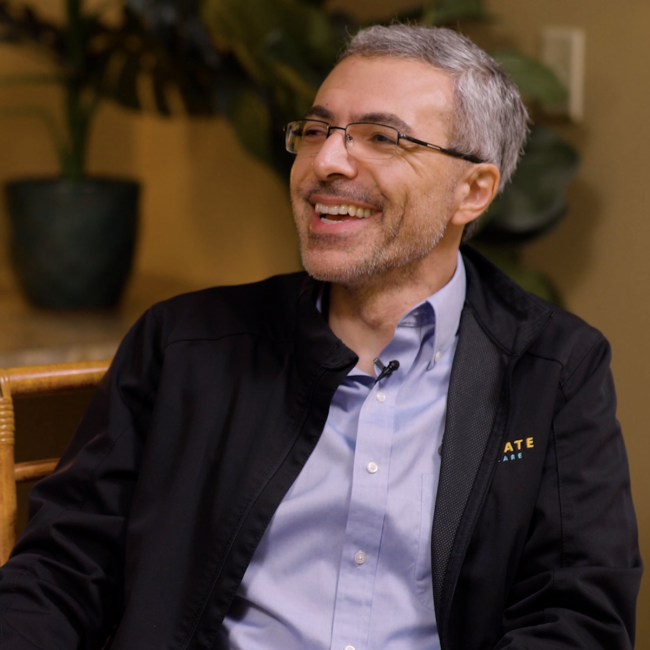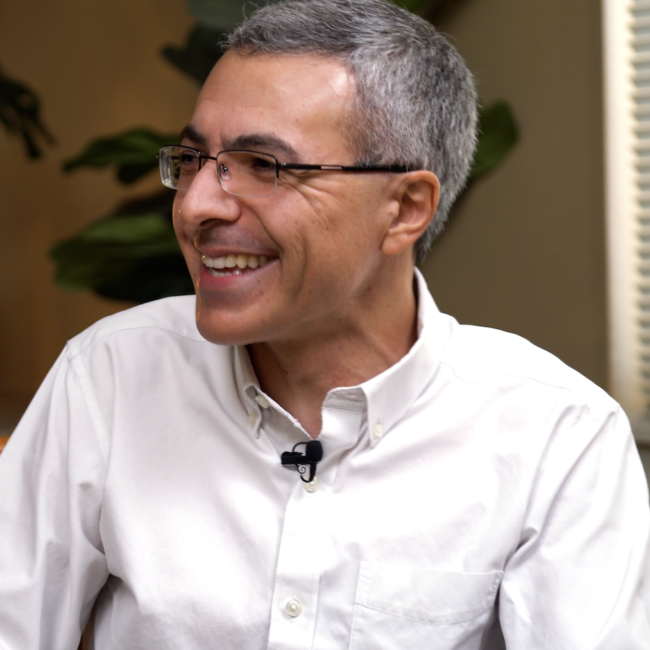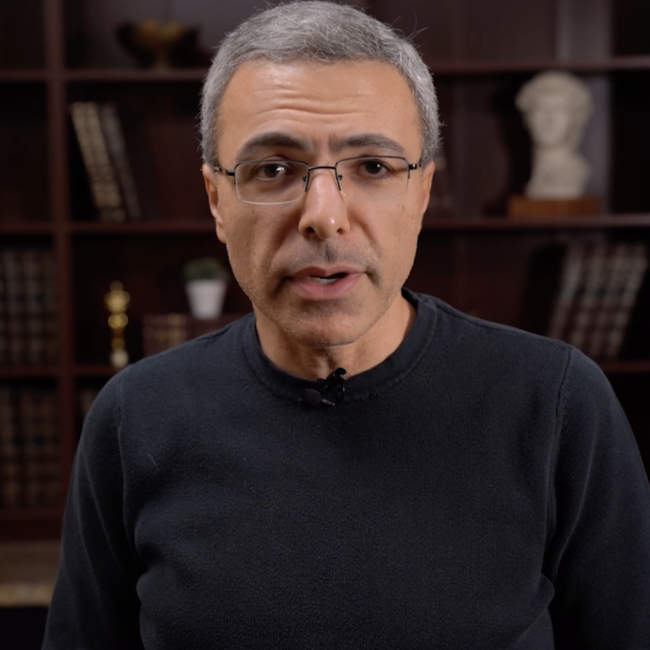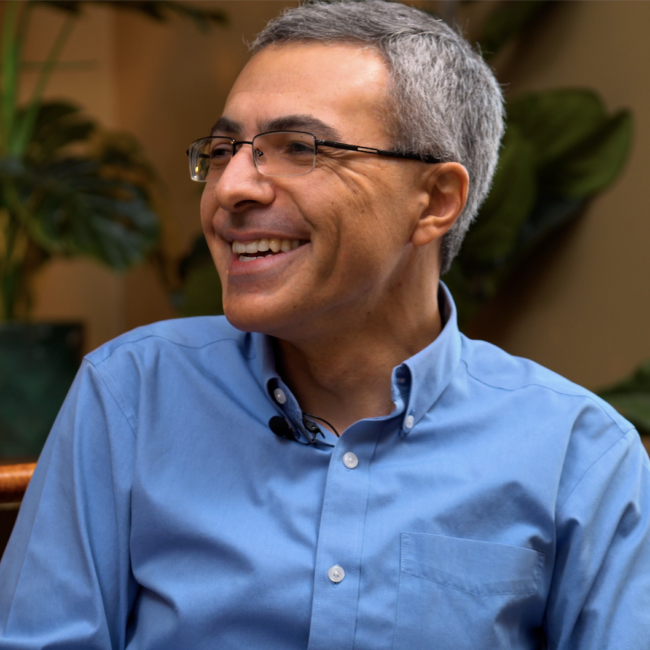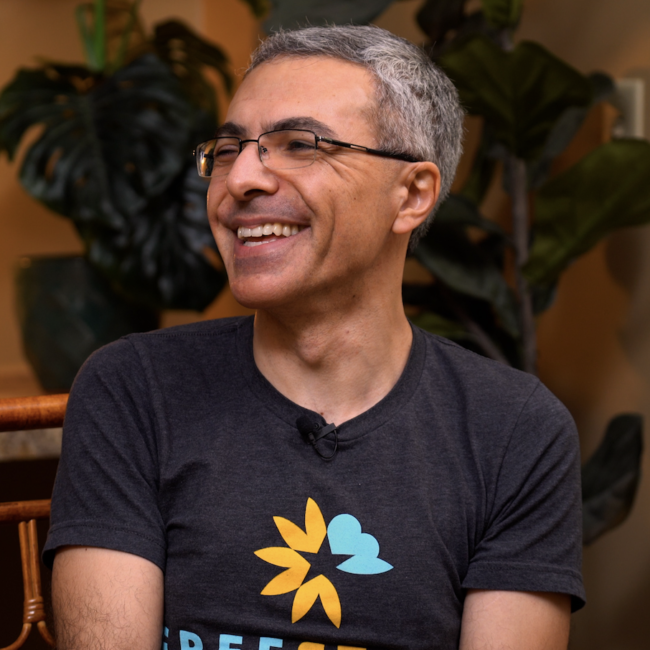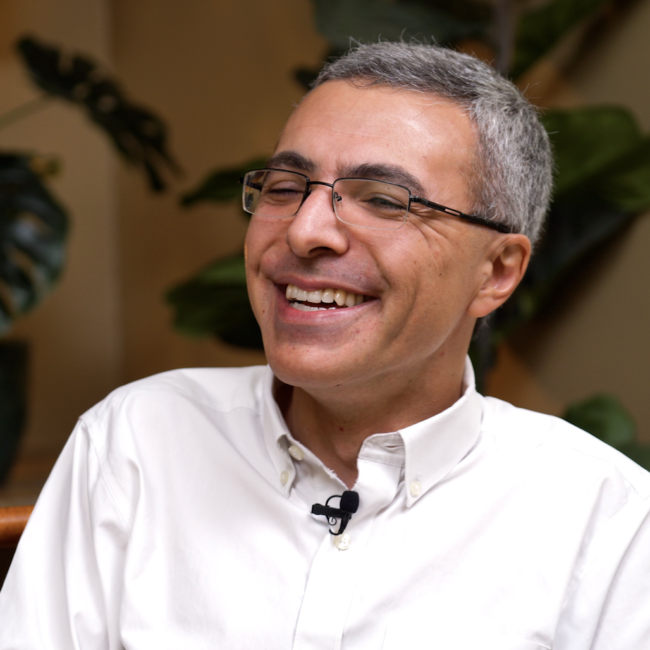
About Episode 5:
Episode Transcript:
Dear Healthcare It’s You: Episode 5
Elisha Yaghmai
Years ago, there was a there's a public open for us, remember who gave us this analogy about Arabs in medicine and said, you know, the airline industry. Right. Fantastic safety record, so safe to fly or they almost never have any problems. Right. You know, there's rarely a crash. Right. Medicine, health care should really learn from this. Right. And I remember thinking then, but I think so now.Elisha Yaghmai
I'm like, yeah, but let's take the health. Let's take that analogy a little further and say, okay, airline industry, you folks are going to take off in any weather. Also, we're going to spray paint your your windshield. We're going to spray paint those black so you can't see where you're going. Yeah, you're right. Your instruments may or may not be fully reliable.Elisha Yaghmai
The tower may or may not be fully right. All right. And if it's icy, if it's snowing, if there's a hurricane, you're taking that plane off right? You know, and then you say, well, how's the safety record now?Jo O’Hanlon
Right, right, right.Elisha Yaghmai
Right, right. That's a different analogy.Jo O’Hanlon
Welcome back to do your health Care. It's you. And welcome back. We're here with Dr. Alicia Mai, the founder of Free state Health Care Clinic here in Wichita, Kansas. Elijah, thanks for being here. We're talking about his medical journey. If you're just joining us now, you can look at our past episodes to catch up. But right now we're talking about your residency years.Jo O’Hanlon
And so we've kind of talked about some of the pieces that formed or transformed in your first year of your residency here in Wichita. And you were talking about, you know, you developed a clinical curiosity and found some more joy in actually diving deep into these cases and really looking at these medical cases from a standpoint of what's going on, why is it going on and what do we do now to treat it?Jo O’Hanlon
And that wasn't really acceptable or given room to happen in the way that it needed to. As you were learning, it sounded like during that residency. And so let's pick up there. You mentioned before that you had some specific things that you were hopeful that maybe the hospital could implement and that you shared with your advisors. What were those things?Elisha Yaghmai
It wasn't a story of a hospital was the residency program. A lot of them had to do with some of the issues that I've already raised. Yeah, and I actually I wrote up a, I wrote a book for going to be pages. It was it was several pages long. That seemed to be my response to stressful situations in those days.Elisha Yaghmai
Write a.Jo O’Hanlon
Paper, just.Elisha Yaghmai
Write a paper about it. So I wrote up I wrote up a list of I think it was like 16 issues that I had identified, and I presented it from the perspective of what am I seeing? Yeah, why is it a problem?Jo O’Hanlon
Yeah, but.Elisha Yaghmai
It wasn't just a complaint session. I also added in each one, what do I think we could do to improve the situation? So it wasn't meant to be. You know, here's my list of gripes It was meant to be. Can we have a conversation about what is going on, why it's going on, why it's not helping us? And then what I think we could do to make a positive change.Jo O’Hanlon
Yeah.Elisha Yaghmai
So I sent that in.Jo O’Hanlon
And how was it received?Elisha Yaghmai
It largely without comment. Nothing changed.Jo O’Hanlon
Yeah.Elisha Yaghmai
I did get one one comment. One faculty member spoke to me as a sidebar and said, you know, basically looking at the document being necessarily disagree, We don't necessarily disagree with what you have said.Jo O’Hanlon
Yeah.Elisha Yaghmai
The issue is that there's a certain culture, a certain way of doing things within the program. And if we make a bunch of big changes, we're going to disrupt that. And that is going to make the residents that came here based on that understanding or have the.Jo O’Hanlon
Prior understanding.Elisha Yaghmai
That culture.Jo O’Hanlon
Yeah.Elisha Yaghmai
That's going to make them upset. And that in turn is likely to harm recruiting because the senior residents, you know, are involved in the recruiting process. Right? They recruit in friends. They speak to medical students. Right. So if they're unhappy, that's going to probably move down the levels. And we may have more difficulty recruiting because people are unhappy.Elisha Yaghmai
Right. Until that generation of people.Jo O’Hanlon
Yeah.Elisha Yaghmai
Are gone. I understand that. I think at a different stage of life, I understand that my my choice and my problem was that doesn't help me. Right?Jo O’Hanlon
Right. Because were you hoping that this would be received in a way that would be like, okay, let's make these changes now? Yes, this is good stuff.Elisha Yaghmai
And to be fair, I had different tiers of concern. Right? Right. So things like the senior resident is checking out there, is checking out their pager without signing out the patient writing notes that are worthless, that don't give me any information. This is dangerous like that.Jo O’Hanlon
Yeah, that.Elisha Yaghmai
Was my approach to.Jo O’Hanlon
Grave concern.Elisha Yaghmai
This is dangerous because you're you're handing your least experienced operator responsibility for all these people, and you don't even have a sign out process. Right? So it's like, I don't.Jo O’Hanlon
Need you for the pager.Elisha Yaghmai
Now. Yeah, right, exactly. But like, you know, now I could walk in and pick up a chart from. From zero, Right? And figure out what I need to do.Jo O’Hanlon
Right. It'd be easier if you had that intercom.Elisha Yaghmai
Yeah, exactly right. It would be easier. Right. So if someone has done very nice documentation, has outlined all their thoughts and how we got to now.Jo O’Hanlon
Right.Elisha Yaghmai
That's of course an easier pick up than if I'm starting from zero.Jo O’Hanlon
Right.Elisha Yaghmai
But in many of these cases I'm starting from zero. And I have, you know, again, four months of.Jo O’Hanlon
Experience, right?Elisha Yaghmai
So you have a very inexperienced person working so low on people they don't know anything at all about.Jo O’Hanlon
Right.Elisha Yaghmai
Right. Getting called with questions that are not benign. Right. In terms of what's going on and they don't know anything. So that to me was a patient care issue. Yeah. Just hey, that's not my style or, you know.Jo O’Hanlon
Right, right.Elisha Yaghmai
So that that kind of thing. And there are others in that genre that were issues that there was no there was not any forthcoming change that was going to happen. And so my issue was, what do I do with this?Jo O’Hanlon
Right.Elisha Yaghmai
What is my response in that context? I think there were other experiences I was having. So, for example, like in some of these new conferences, you know, Dr. Moose at that time would ask questions. So as part of it, he would ask questions about whatever. And I began to realize in some of these sessions I was able to answer questions that some of the more the older residents, the more senior residents were not able to answer them.Elisha Yaghmai
And that was a weird that was a weird sensation. And I say that because what one response to that would be, you know, take that as an ego boost, right? I mean, you know, I'm so knowledgeable. My response to it was what you see ahead of you is what you're going to be.Jo O’Hanlon
Right.Elisha Yaghmai
You know, so.Jo O’Hanlon
Not a lot of promise for gained knowledge.Elisha Yaghmai
You shouldn't. I want you to know more than me. Right, right, right. Yeah, I do feel special because I know more. I actually feel really scared because you should know more than me. Right? Right. And this was not a situation where they were holding back and, like, letting the junior people answer. Like, it was like nobody else could answer the question.Elisha Yaghmai
Right. And that was really, really off putting. And I will say, one, when I did change residences, one of the very first experiences I had actually was going to a teaching conference. And the senior residents at that point definitely knew more than me, right?Jo O’Hanlon
Yeah, exactly.Elisha Yaghmai
And that that.Jo O’Hanlon
Which is comforting.Elisha Yaghmai
That is what I wanted. Yes. Because I was like, okay, number one, these people know more than me. I would, but they do. That means they can teach me, right? They can make me better at this.Jo O’Hanlon
Job, right? Yeah.Elisha Yaghmai
Otherwise I'm just out here kind of doing whatever or thinking that I'm some kind of genius. I may be a fool, right? But I don't have anybody here that can tell me more than I already know. And I have that experience to some degree on some of the some of the patients sometimes I felt in many cases like I'm just kind of I'm out here trying to come up with a plan and nobody involved with this case knows more about this.Elisha Yaghmai
Yeah, nobody knows more about this. And so I'm kind of lost. And so I have occasional interactions with people in other specialties. Right. And I realize, okay, you know, when I talked to the I talked to the internist about this like they did know more and they could give me more direction. Right. And they could they could help me think about it more cleanly and hone it down and get it get it closer to right, right.Elisha Yaghmai
I had that experience a couple of different cause we work with a variety of different, different attendings for different specialties, right? So I had that experience where I noticed that when I work with the internal medicine train people, they were a little bit more precise. Yeah, they knew more overall about about adult hospital medicine and more about that.Elisha Yaghmai
And their thinking was a little bit more honed and precise, the best way to describe it. So I looked at that and said, Well, that's interesting. I do see a difference here that I didn't think I was going to see, at least in this environment here. I'm not making any broad statement about anything I'm talking about in my environment so that combined with the fact that an attempt to make change that I felt was important was not received right.Elisha Yaghmai
And when I say there was also some feedback which was negative. Right. Which was why?Jo O’Hanlon
Why are you reading to your letter to me?Elisha Yaghmai
Yeah. Why are you raising this? Like some of the reasons got very angry, right? really? yeah. They introduced a new policy that said from now on, if you have a if you have a problem in your rotation. Right. You take that to the senior resident first. You don't take that to the attending physicians, you take it to senior resident first and then they will decide if that gets passed on, that gets passed on to the attendings.Elisha Yaghmai
Right. So it definitely it definitely ruffled some feathers the wrong way.Jo O’Hanlon
Did it get distributed among all the resident?Elisha Yaghmai
I don't know exactly who all saw it in the end. I know some people did, but.Jo O’Hanlon
There was knowledge.Elisha Yaghmai
Of. Yeah, there was knowledge that it had taken place. Right? Yeah. So that, you know, I've that kind of I mean, in the end I kind of left with a sour taste in my mouth in general.Jo O’Hanlon
Yeah.Elisha Yaghmai
How all that had gone down in the way everything was. But I ended up changing as a result of that, I changed over to internal medicine pediatrics. So that was.Jo O’Hanlon
Same hospital.Elisha Yaghmai
Same same city, basically. Yeah, I'd say we worked at a variety of different hospitals, but yeah, same general environment, but working with different faculty, different residents, different program, and that was a much better fit for me in terms of personality, in terms of how I like to learn and all of those types of things were there. So the irony was I think that to this day I think that in terms of personality as a human being.Jo O’Hanlon
Yeah, the program.Elisha Yaghmai
I went to originally was the right one. Like in terms of people's personal motivations, why they were there, who was there, what they wanted to do, all of those things. You're right, the professional culture did not fit at all.Jo O’Hanlon
In terms of just not having enough time, not enough resources.Elisha Yaghmai
Not just not time, but the focus on work over learning, work over quality, not having enough concern for whether patient care was being adequately done, not having enough concern for the real quality of the product. In terms of are we digging into this as deeply as we should? Do we know everything about this that we should write right?Elisha Yaghmai
But with that aspect, what.Jo O’Hanlon
Were the parts of the personality that you mean then when you're saying that that did it, maybe you would have said you? Well, it's like personality.Elisha Yaghmai
The people that came to that program at that time, I think shared a similar motivation in terms of there was a lot they had some basic altruism.Jo O’Hanlon
Yeah.Elisha Yaghmai
Like these were people that got into medicine because they wanted to in some way make a positive contribution to their community, to the world.Jo O’Hanlon
Yeah, National.Elisha Yaghmai
Health, you know, helping underserved people like that was their thing. They wanted to do that element of it. The difficulty was that what the program was doing at that time was bringing in decent people like us as human beings, decent people, but not giving them the caliber of training that they could have given. And that was that was a distinction.Elisha Yaghmai
So they could have done more, in my opinion, at that time. They could have done more with those people professionally than they were doing.Jo O’Hanlon
Yeah.Elisha Yaghmai
So that what the end product and I'll give you here another example. This is this happened toward the end of my first year. Bear in mind this is in the context of me reading everything inside all these attach things. I remember having a patient that time had a particular condition. It's called a pleural effusion. So fluid collects around the lung.Jo O’Hanlon
Right?Elisha Yaghmai
I had a patient in the hospital and I was. I was taking care of my patient. I'm sitting there thinking through the case. We're going through things right on on my family medicine service. And I happen to overhear the internal medicine service rotating on a very similar patient, and their attending was talking to their interns.Jo O’Hanlon
Yeah.Elisha Yaghmai
And I realized there were some subtleties that their interns knew about that condition and how to interpret tests and things like that, that after one year I still didn't know. And I was like, I've put one year of really heavy effort into this in terms of trying to teach myself things.Jo O’Hanlon
Right, right.Elisha Yaghmai
And yet there are things that these folks over here know that I don't know.Jo O’Hanlon
Yeah.Elisha Yaghmai
And that's a problem to me, right? Because we've both been doing this for a year. They've been more focused on this one area for one year. I've been doing pediatrics and obstetrics and surgery and whatever. Right? But I really made an effort to learn this. And at the end of 12 months, they're a little ahead of me compared to where I would like to be.Elisha Yaghmai
That, to me is a problem.Jo O’Hanlon
And not in terms of like meeting a bar, but just in terms of no, no.Elisha Yaghmai
But in terms of quality know, because I looked at I listen to them and I thought, you know what, if I have this in this conversation today, I wouldn't have known that. I would have known that you could do this type of thing and that that would skew the test results, right? Yeah, I would not have done that.Elisha Yaghmai
Now, I might have learned it at some point in the future.Jo O’Hanlon
But. But you hadn't learned it.Elisha Yaghmai
I hadn't learned it yet. Right. And yet here I have a patient in front of me right where this could this could affect something very practical way, Like it could change my diagnosis from correct to incorrect what was going on. And and I wouldn't have known that that possibility existed.Jo O’Hanlon
Right.Elisha Yaghmai
Right. Nobody had taught me that that possibility existed. And in my reading up to that point, I had found that anything that I had read. Right, Right. They had learned that through the experience of whoever it was they had worked with, who had passed that on to them or had somehow made that knowledge known to them in a way that I did not know at that time.Elisha Yaghmai
Yeah. So these are the types of things where I was like, okay, professionally speaking, I have to go to where I think I will get the most complete experience in the most complete training so that I can get into the depth that I want to get into.Jo O’Hanlon
Yeah.Elisha Yaghmai
You know, for that's for the subjects that interest me the most.Jo O’Hanlon
So in changing residencies, did you have to forfeit the opportunity to work internationally afterward as part of that program?Elisha Yaghmai
I didn't have to forfeit it, but I didn't get to do yes, I didn't get to do the international fellowship that I had wanted to do. That would've been at the end of the filming. This was I didn't get to do that.Jo O’Hanlon
There wasn't one.Elisha Yaghmai
There was one with the it wasn't it wasn't a thing. I did try to get in international health. That happened after I finished residency. And that's a different yeah, a different story that didn't work out. So But not, not for any bad reasons.Jo O’Hanlon
Yeah.Elisha Yaghmai
Just the way things went down.Jo O’Hanlon
Do you think that maybe that aspect is like one of the big defining portions of the personalities you're speaking to of that original program that you were part of? Like kind of grouped better with you of being more compassionate or things like, you know, altruistic in those ways like that draw toward that international and peace that they were going to be going towards.Elisha Yaghmai
Yeah, And not everybody was there for international, right? Other people were there just doing family medicine training. Right. And other people were thinking more about like underserved populations in the United States, Right. Yeah. They weren't trying to get out of the country per se, but they just wanted to help people that didn't have a lot of people helping them.Jo O’Hanlon
Gotcha.Elisha Yaghmai
But the same it's the same ethos underneath.Jo O’Hanlon
Yeah. Yeah. And your second one, though, So you did end up having a broader learning experience. You felt like, yeah, but you say that it didn't necessarily suture as well personality wise was back to some of that more like, like the best, you know, the race to be the best.Elisha Yaghmai
It wasn't quite it wasn't nearly as as awful as medical school was not really I really the experience overall was I think was generally a positive one. There were there were people that went back to that kind of old style of tearing apart stuff. And I would say that also thinking back again to some degree, especially early in that residency, I absorbed some of that.Elisha Yaghmai
Yeah. So thinking back, like when I think back even to my own behavior, like toward my own junior residence, there were times when I was like, you know what? Like I was probably too much. Yeah. You know, that was a reflection again of kind of the, the ethic absorb and you see it. I think at least in retrospect, you see it, right?Elisha Yaghmai
You get you absorbed some of that.Jo O’Hanlon
Behavior, right.Elisha Yaghmai
And then you think it's not it's not the behavior like let me throw stuff across the room or, you know, punch the wall. It's more like there's a sort of ruthlessness to it. It's like an intellectual ruthlessness, right? Yeah, Like, if you don't know this, you're stupid.Jo O’Hanlon
And like, some of your early on.Elisha Yaghmai
You know, it's. I.Jo O’Hanlon
Are you regretful of how you were?Elisha Yaghmai
Yeah, I would say so, yeah. If I had to do it again, I would do it differently. You know it's the culture was it's it's a larger is reflective of the broader culture. But there's a lot of gotcha culture in medicine. It's not one of we're all in this together, right. And let's build each other up. Right? It's not.Jo O’Hanlon
Right.Elisha Yaghmai
But but there are so many different reasons for that, right? It's not just like, well, let's just all get together around the campfire and be peaceful. Now, it's not that. It's your you're doing a high stress, high precision job. Yeah, right. Where the stakes are very, very high.Jo O’Hanlon
Yeah.Elisha Yaghmai
So the room for error is effectively zero. The problem is you're working at all times with incomplete, imperfect information.Jo O’Hanlon
Right? Right.Elisha Yaghmai
So the the the reasons to have an error are also happening all the time, right? You're also working with very inferior tools, right? Yeah. I'll harp on the electronic medical records later, but yeah, you're working with inferior tools you're often working with without having all the things you even need.Jo O’Hanlon
Right? Because they're from different.Elisha Yaghmai
Places, have different levels of capability, diagnostics, whatever else. Right. So you don't have everything you need. The patient may or may not be reliable. You don't have all the information that you need. You may or may not be able to get all the diagnostics you need. The diagnostics themselves may not be accurate. The nursing staff may be great or they may be terrible.Jo O’Hanlon
Right? Right.Elisha Yaghmai
You have all of these variables going on. And yet in that environment, you have to be perfect, right? The expectation, the standard is perfection. Yeah, right. So but yet no one can be perfect. Right? Right. So years ago there was a there's a public professor, remember, who who gave us this analogy about errors in medicine and said, you know, the airline industry right.Elisha Yaghmai
Fantastic safety record. Right. Is so safe to fly or they almost never have any problems. Right. You know, there's rarely a crash. Right. Medicine, health care should really learn from this. Right. And I remember thinking then, but I think so now. I'm like, yeah, but let's take that let's take that analogy a little further and say, okay, airline industry, you folks going to take off in any weather?Elisha Yaghmai
Also, we're going to spray paint your your windshield. We're going to spray paint those black red so you can't see where you're going. Yeah, you're right. You're instruments may or may not be fully reliable. The tower may or may not be fully right. All right. And if it's icy, if it's snowing, if there's a hurricane, you're taking that plane off right?Elisha Yaghmai
You know, and then you say, well, how's the safety record now? Right, right.Jo O’Hanlon
Right, right.Elisha Yaghmai
Right. That's a different analogy. Or it's a different it's a different experience. Yeah, but this is what medicine ultimately is, right? So so on the one hand, you have this very error prone system constant on the other hand, from medical school on that you're taught very clearly the standard here is perfection. Your your job is to never, ever, ever, ever get it wrong.Jo O’Hanlon
Right.Elisha Yaghmai
So in that environment, it breeds this sort of this sort of eat your young toxicity, right. Because it's like you can't you can't tolerate the mistake.Jo O’Hanlon
Right. Right.Elisha Yaghmai
Because your mistake might actually kill somebody.Jo O’Hanlon
Right.Elisha Yaghmai
So how do you build and I don't necessarily have the answer to that. Right. Right, right. This is a real question. How do you create a positive culture in a positive environment when error cannot be tolerated?Jo O’Hanlon
Right.Elisha Yaghmai
It's not it's not clear.Jo O’Hanlon
But having.Elisha Yaghmai
Said that, some places still do it better, I would say others others embrace that toxicity and make it almost an emblem of their culture.Jo O’Hanlon
Right.Elisha Yaghmai
And others say, look, we can at least be we can at least be nice to each other on a human level.Jo O’Hanlon
Right? Right. Well, even just you talking about in Southwestern in your third year, the advising physician, attending physician, you know that you had reported and they said, yeah, yeah, right. Yeah. I mean, that's as a really good example to me. But I guess it is that question of how do you have this desire for perfection because you need it, because that is you have to have that high standard for not having people die then, but then like how do you create that curiosity in that, you know, what you had from your news conferences and the pieces like that that you developed over here in a way where you, you know, desire to dive in andJo O’Hanlon
take time and read everything that you can find about it. And all those pieces like, you know, even just in yourself. Do you feel like as a physician, if you were in a faculty position again, that you would have a better way of guiding younger talent, or is it still just the same kind of conundrum?Elisha Yaghmai
I would say that early and early in residency, I struggle with that.Jo O’Hanlon
Yeah.Elisha Yaghmai
As I went through residency, it began to change. Yeah, and I would say that my my personal approach at this point was to make it about effort rather than outcome. And that's how I describe.Jo O’Hanlon
Make sure that you were showing up effort wise.Elisha Yaghmai
In other words, so in other words, if I if I say if a medical student ever was if I went through the chart and I saw that what happened here was you read the information. Yeah. You tried to make a call. You know what? You made the wrong call.Jo O’Hanlon
Yeah.Elisha Yaghmai
That's not a strike in my mind, right? That's not a strike. That's a teaching.Jo O’Hanlon
Moment. Right?Elisha Yaghmai
I can help you understand why you made the wrong call. What you should have done about it, and how to do it differently next time, Right?Jo O’Hanlon
Yeah.Elisha Yaghmai
If the issue is that you're lazy or a liar, which is also happened to the medical residency. Right? If you're a liar, if you're lazy, if you will not put in the effort required.Jo O’Hanlon
Yeah.Elisha Yaghmai
To make yourself better professionally and to provide the best care you can to this person. That to me is when you kind of get that's when you start to bridge over into the we can't tolerate this. Yeah right And and there is in medical training there is a dichotomy with that.Jo O’Hanlon
Yeah.Elisha Yaghmai
You have people even when I think when I think back to the medical students presence that I work with that came out to be great doctors.Jo O’Hanlon
Yeah.Elisha Yaghmai
The ones that came out to be great for the most part all had that.Jo O’Hanlon
Yeah.Elisha Yaghmai
Whether whether they were the most brilliant or, or most knowledgeable medical student really wasn't relevant. What was relevant was how much they cared about trying to be the best they could be.Jo O’Hanlon
That motivation, motivation, part.Elisha Yaghmai
Of the effort. It was the desire to learn. It was the willingness to get in there, the willingness to work right and to show up and to just keep doing and keep grinding it out, you know, do something and maybe mess it up, but do it again. Right. Versus the people who viewed it very much as like, I'm just trying to get through this, you know what I mean?Elisha Yaghmai
Yeah, just trying to get through. And, you know, in my mind, as soon as that clock hits the end of my shift, like I'm pushing out of here, right? I don't care if my work is done. I don't care if I've seen the lab results. I don't care if I have the imaging. I don't care if anything is done right.Elisha Yaghmai
I'm just out of here, you know? Yeah, I got something. And, you know, they gave me. I heard this diagnosis from the resident before me, and I didn't bother to go back and check any of the objective information to decide if it was actually true. I didn't do that because I would have been more time. And I don't want to put the time, you know what I mean?Jo O’Hanlon
Like that. Yeah.Elisha Yaghmai
That for me is harder. And but there is I would say there is a significant minority of people in health care that work that way.Jo O’Hanlon
Yeah.Elisha Yaghmai
That do work that way.Jo O’Hanlon
And they're probably the ones that are not leaving the greatest notes for the year.Elisha Yaghmai
I mean.Jo O’Hanlon
Yeah, I mean.Elisha Yaghmai
There's all of that, right?Jo O’Hanlon
I hear you talking. It sounds like there's like almost a dichotomy between like those that are approaching it as a team approach rather than a solo stud trying to quarterback and the.Elisha Yaghmai
Difficulty with it, though, is here again, there is there is definitely a space for personal responsibility in this, Right. You have to you individually as a provider, have to take some amount of personal responsibility for the outcome or for what's going on.Jo O’Hanlon
Yeah.Elisha Yaghmai
But like anything else, the system in which we operate does not promote the positive attitude.Jo O’Hanlon
Right?Elisha Yaghmai
You know, so here again, I'll take the stick. The lazy.Jo O’Hanlon
Yeah.Elisha Yaghmai
It's easy for me to sit here and say, well the lazy resident. Right. Well what's the lazy resident actually doing. Well, they're probably working 12, 14 hour shifts, right? They've got a life outside this place. Something's going on at home. Yeah. Their spouse is unhappy, their parents are sick, or some other thing is also happening.Jo O’Hanlon
Right?Elisha Yaghmai
And we're saying, hey, you know, we need you to show up here at 530 in the morning. Right? You're going to go home at 730 at night and you're going to do this every day for a month. Right? Right. And we expect you to do that. And again, you're we're going to give you all these other imperfections in the system, you know, and we expect you on day 30 to be just as detail oriented and focused as you were and dedicated.Elisha Yaghmai
Right. And diligent as you were on day one. Right. And you know, you can say that. Right? But but in point of practice, yeah, you can say it. But in point of practice, your issue is, is that really realistic? Is everybody really going to do that amount of work.Jo O’Hanlon
Right.Elisha Yaghmai
And do it perfectly? The answer is an obvious no. Right? Right. So in other words, you take some. So if you don't have the sort of iron will in that sense to say stay 30, I hate everyone today, but I am going to it's going to take me one hour to go through this chart and I am going to spend the one hour.Elisha Yaghmai
And you know what it's going to it means that I'm not going to finish at seven. I'm going to finish at 11.Jo O’Hanlon
Right. Right.Elisha Yaghmai
So I'm going to start it start at 6 a.m. officially 11 p.m.. Right. But but I'm going to do that because I need to read this chart and it's going to take me one hour to dig through all this patient has 20 years worth of history or whatever it is, right? I have to go through all this stuff because it's not presented to me.Elisha Yaghmai
The software those are presented to me in a pre digested form, right? I got to go find it all myself. I'm going to do that even though I don't at all want to do this right now.Jo O’Hanlon
Right.Elisha Yaghmai
You can understand, right. How it would be possible for somebody to say, you know what, like the primary.Jo O’Hanlon
Okay, right. I think I'm just going to have this quarter today. Yeah.Elisha Yaghmai
I cannot look at this stuff.Jo O’Hanlon
Yeah, I'll.Elisha Yaghmai
Just try to get through the day and get this done. And then maybe tomorrow the next person will come on and like, they'll take care of.Jo O’Hanlon
This, right?Elisha Yaghmai
You know what I mean?Jo O’Hanlon
It's, I'm mean, it sounds like, you know, any job that you're given too much of a workload, honestly. And then there are some jobs that you can't do that because you work at Wal Mart or something and you didn't get everything stocked. And so you're going to go home anyway and people are going to stock it for you and you're gone.Jo O’Hanlon
But I mean that. Yeah, unfortunately, medicine isn't one of those jobs. Right. And and when it does come to that cross-play of someone picking up where you left off, I mean, then there's those gaps if you leave them. Yes, it sounds like. So with your residency, you finish it out then in Wichita, is that right? That's right. And then from there, what was the process like to the next step of your journey to going into the real world, being fresh, fresh out of the out of the hospital?Elisha Yaghmai
Doc So so for one, because because I change residencies, I did a longer duration of training, so I did almost five years worth of training in total because I changed to internal medicine pediatrics, which is a four year program. I did the first year of family medicine, and I got actually there was very little cross applied credit from the really?Elisha Yaghmai
To the Internet. And it's just the way it depends on who's the faculty, whatever else right there is.Jo O’Hanlon
There was learning.Elisha Yaghmai
There was no problem in either program is just the way this this works. Right. And so I had almost five total years worth of training in that in that context, which I think in retrospect, again, was valuable because I got to do a lot of things that I might not have otherwise done if I'd finished in the.Jo O’Hanlon
Normal right.Elisha Yaghmai
Duration, right? So no. So then I went from there, actually, and I started initially working in rural Kansas.Jo O’Hanlon
That's where I started what city?Elisha Yaghmai
I was in, Parsons.Jo O’Hanlon
Kansas, and Parsons. Well, let's go ahead and pick up there next time when we're together and hear about how it was starting off as a doctor on your own with the residency behind you and kind of what you learned from that take out takeaways and see what happened there as you made your way closer to starting free state health care.Elisha Yaghmai
Sounds good.Jo O’Hanlon
That's awesome. Thanks a lot. Thanks a lot.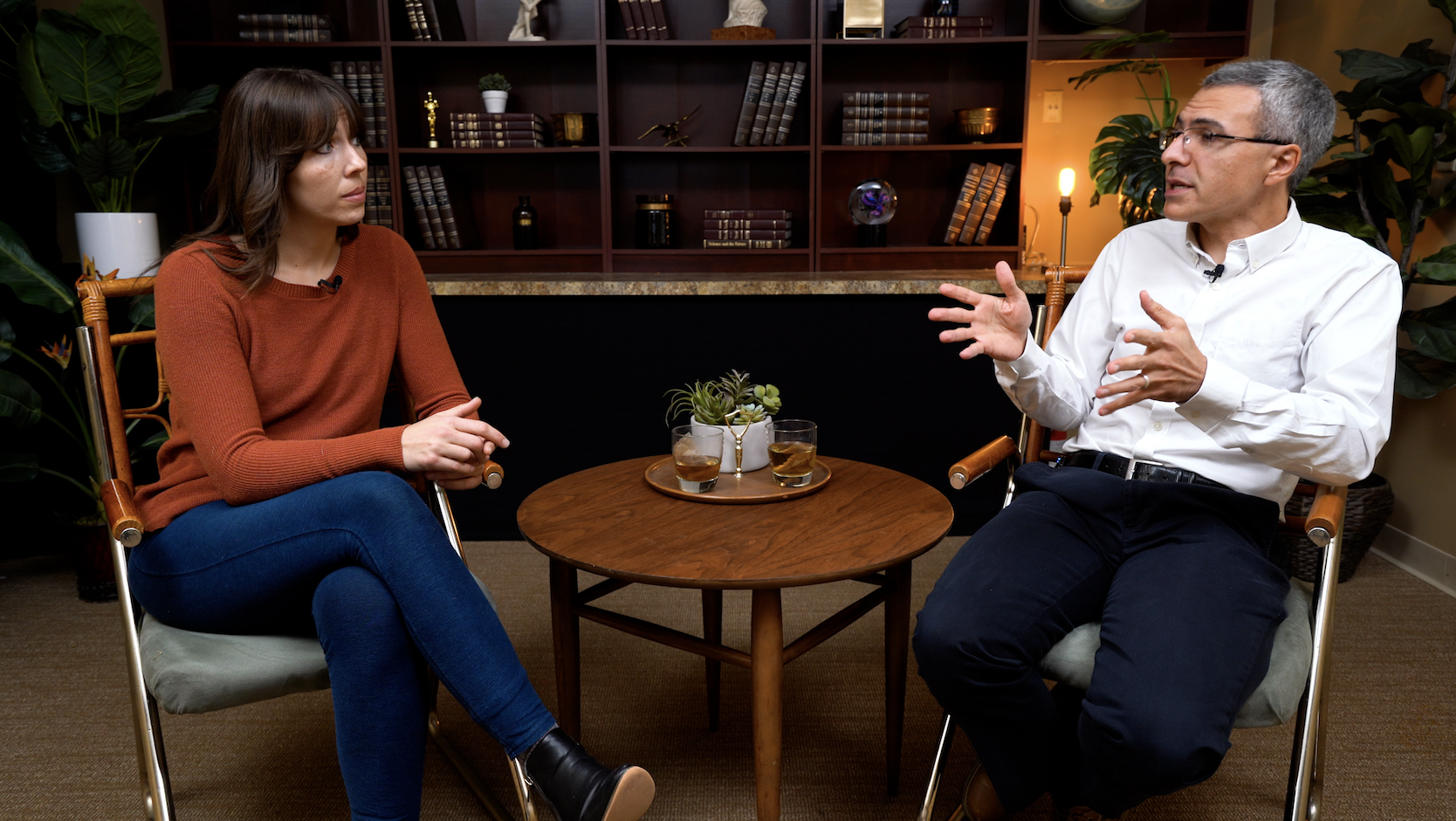
Meet your hosts:
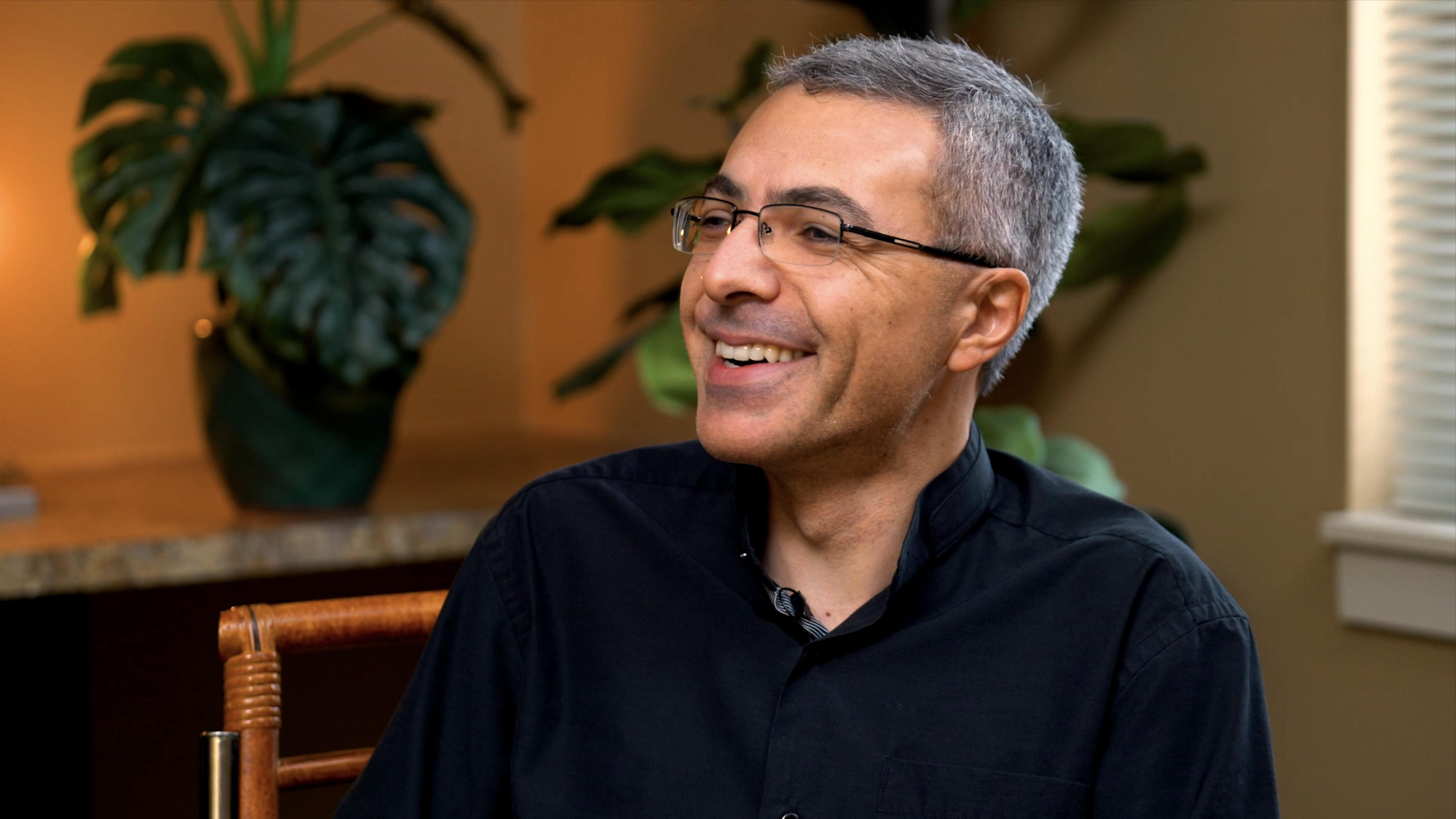
Dr. Elisha Yaghmai
Host
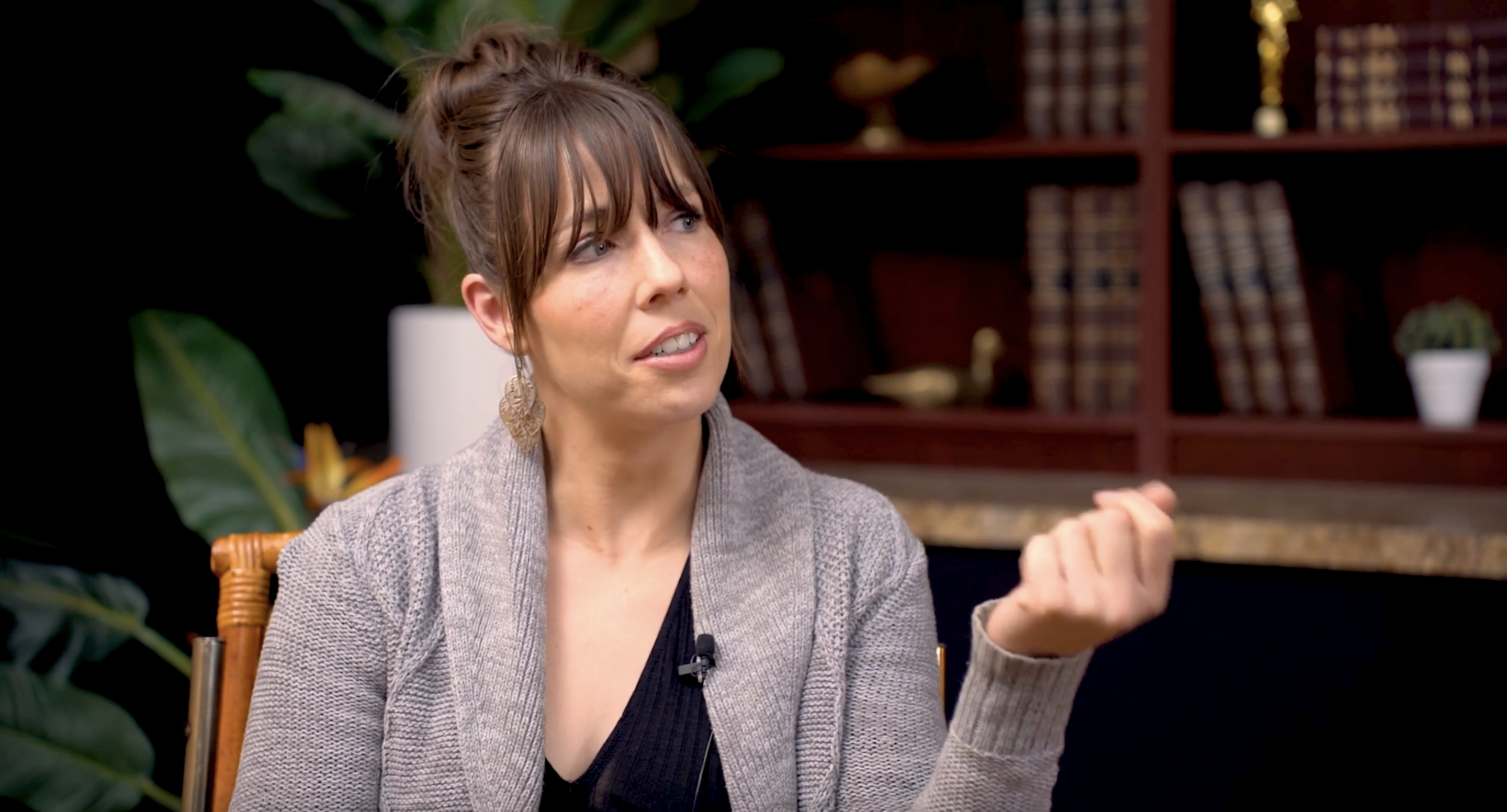
Jo O’Hanlon
Host





